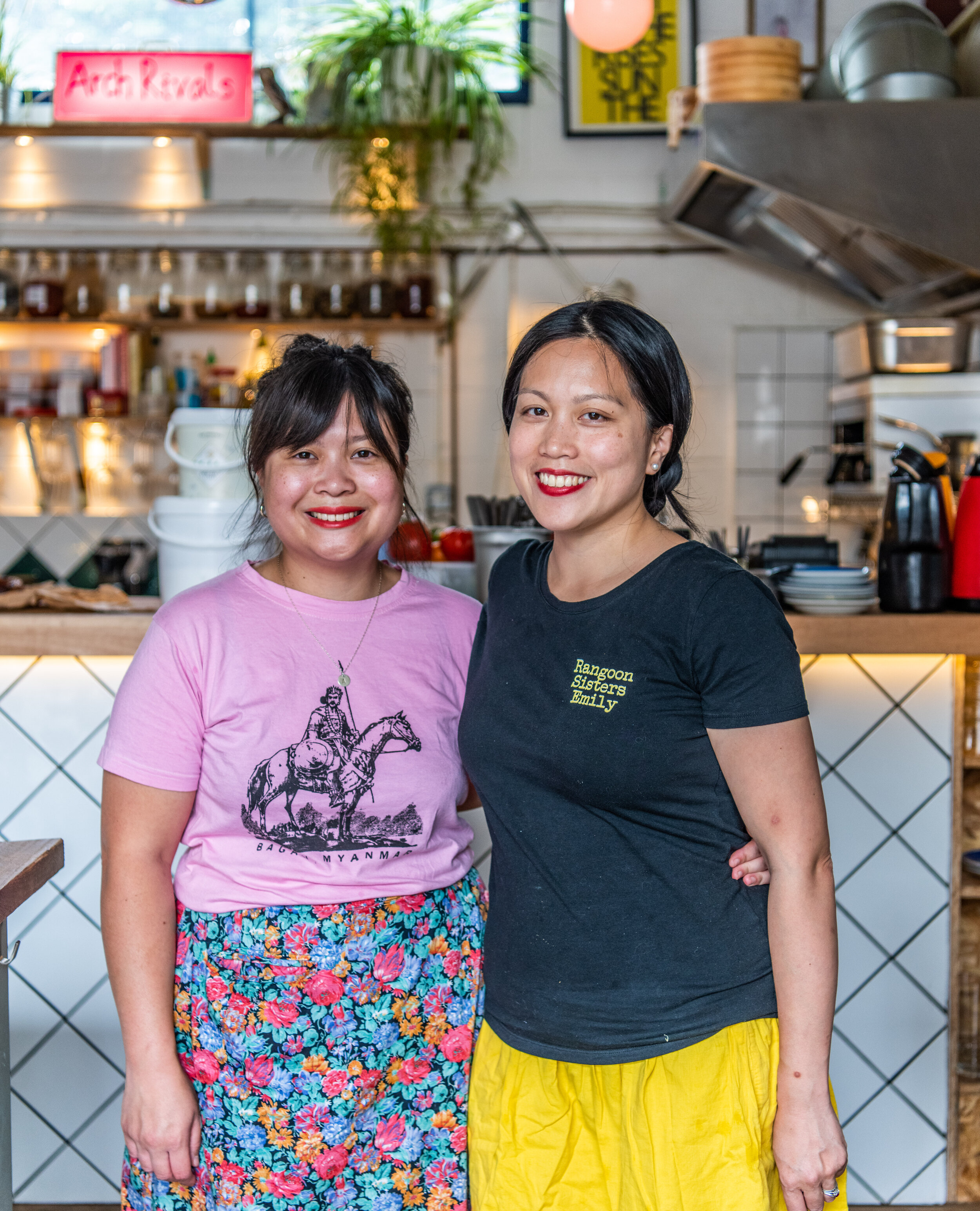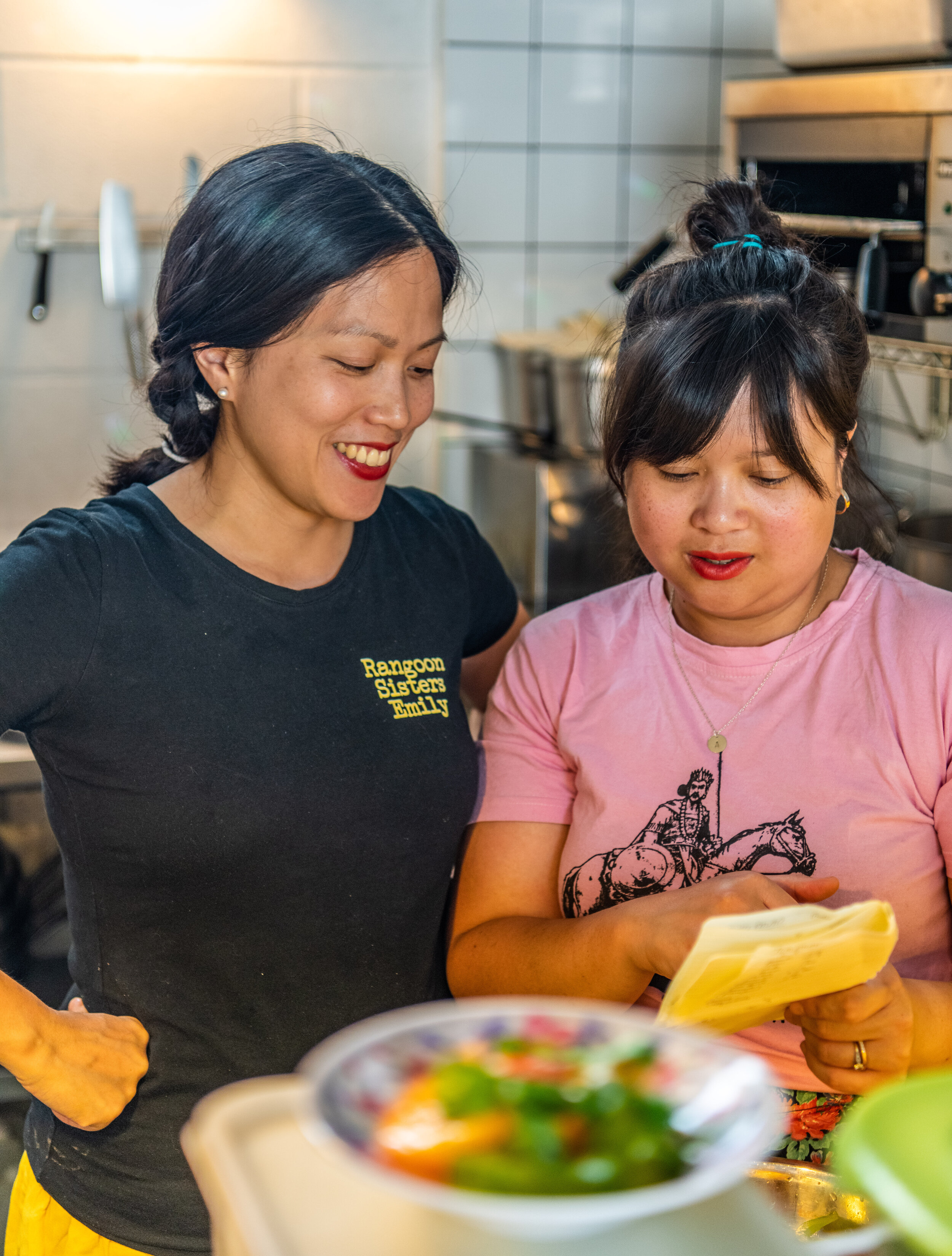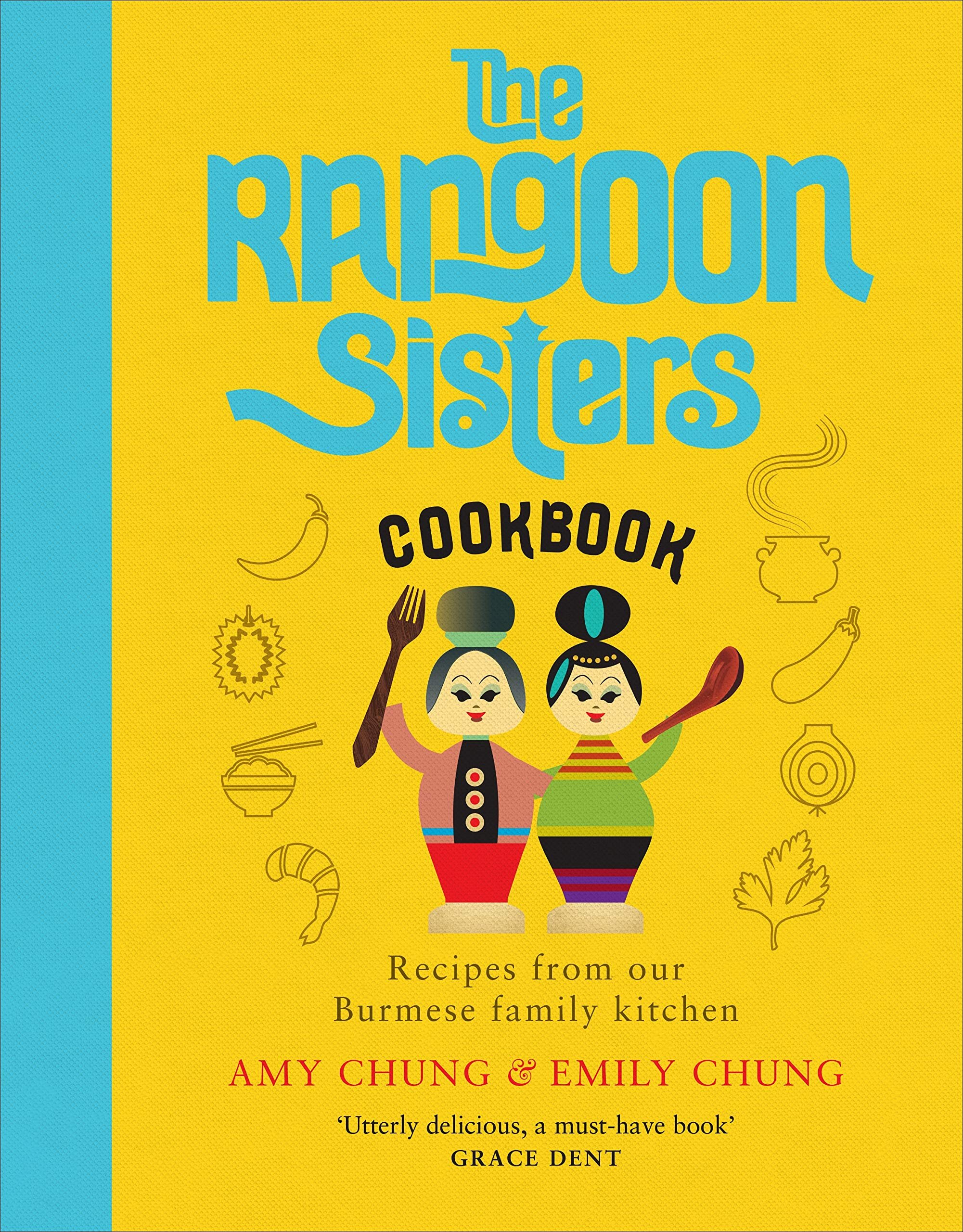Sisters are doing it for themselves
We spoke to Amy and Emily Chung, otherwise known as The Rangoon Sisters, about embracing their dual Burmese and Chinese heritage while growing up in the UK and how they’ve brought mohinga to the mainstream.
Interview by Amy Phung
What object or food reminds you of your childhood?
Emily This is a difficult question! So many foods, so many memories.
Amy Instant noodles – such a quick meal we often had as kids. Mum or Dad would stir through an egg, some veggies, any left over meat in the fridge. Now I like to have them with a bit of chilli oil, balachaung (fried garlic/shallot/shrimp garnish).
Emily I’ve recently had my mind blown by fake plastic cheese slices on instant noodles, where have you been all my life?! I think one of my fondest food memories is curry on toast.
“The first time I ate Burmese curry (as I think I was a bit chilli averse when little) was when I was about six and Mum was having it leftover on buttered white sliced toast (the curry was beef and it was the crust of the loaf). I was hooked. I still love that combination as comfort food, as much as I love rice too of course.”
Amy I think it was a little easier to connect with our Chinese heritage growing up as Chinese food was more accessible. I think that’s probably why we have really thrown ourselves into the Burmese food side as we got older, as it was a way to connect.
Emily Yes, most villages in the middle of nowhere even had Chinese takeaways (we grew up in South London!). We would go up to Chinatown all the time as kids and go to New World for dim sum, sadly it’s not there any more. Dad used to drive up and park in Seven Dials, which seems slightly unbelievable now.
How was Burmese food and culture incorporated into your life while growing up in London?
Emily: To be honest, it was quite hard because the only sources were our Mum and Grandparents. They had a few friends from Myanmar who they saw occasionally, but over time that connection was lost. Our Grandparents didn’t talk to us much about their lives back in Myanmar, largely because they’d had quite a stressful time when they left (back in the 1960s when it was quite unsettled politically). So food definitely helped connect us to our Burmese culture and roots. We learned how to cook Burmese food from Mum and it enabled more conversation and learning.
Amy: As we got a bit older we did grow more curious and set up a Facebook group called Burmese Brits as a way to seek others out. In fact we are still in contact with someone from those days, over ten years later.
“More recently we have both been keen to spend longer periods of time in Myanmar, volunteering for a medical charity called Medical Action Myanmar, teaching doctors in our respective specialties. These experiences allowed us to really immerse ourselves in living in Myanmar and provided insight into Burmese culture.”
Credit: Martin Poole Photography
What’s the best thing about bringing Burmese food to a wider audience within the UK?
Emily: We’ve always said, the main aim of all the culinary exploits that we have been fortunate to take part in, is to spread love for Burmese food. We think we have managed this, via our supper clubs and now our cookbook, and it is such a joy to see people cooking and enjoying the recipes.
Amy: Food can educate about countries and cultures. It inspires conversation and debate. Most importantly, it brings people together and helps to solidify good memories of happy times together.
Congratulations on the release of your cookbook! What’s next for the Rangoon Sisters?
Amy: Thank you! We hope to pick up supper clubs in some way or another in the future, whether that’s in a more distanced way at first. We have done a few cookalongs which we will continue and more charity events.
Emily: We embrace the opportunities that may come our way – we are very privileged to have them! And definitely no intention to give up the day job – I am a Consultant in sexual health and HIV, which I love, and Amy is training in psychiatry.
“We love the NHS, what it stands for and we have to be prepared for winter – it’s likely it’s going to be tough. I think we’ve been really lucky to get to “do food” too and it’s helped with our work-life balance. Onwards and upwards, whatever may be thrown at us for the remainder of 2020!”
Follow @RangoonSisters on Instagram or visit their website to keep up to date with potential appearance, cookalongs and supper clubs. Thank you so much to Amy and Emily for their insights into their love for the amazing food of Burma. Stay tuned for more fascinating stories from ESEA chefs from the UK - sign up to our newsletter below to make sure you don’t miss out.




